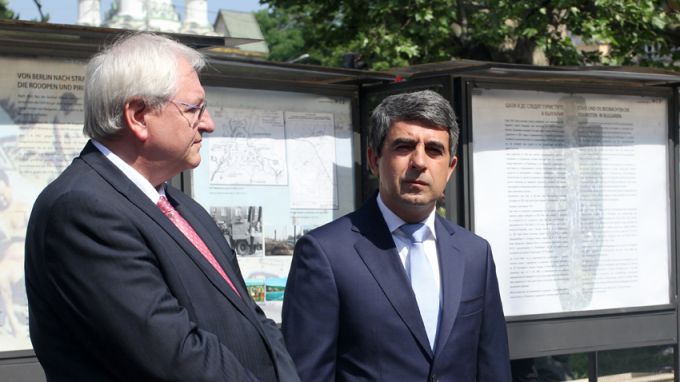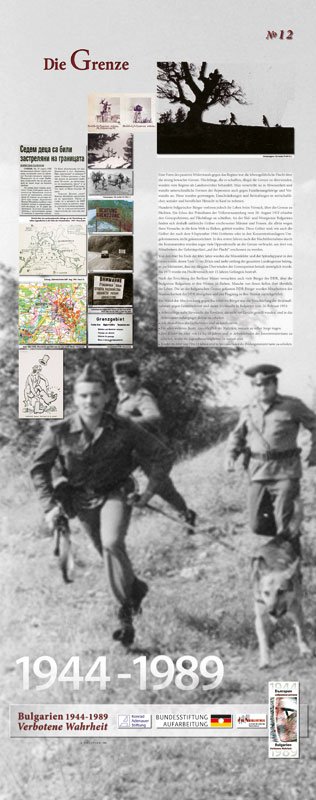
 When at the end of 1989 thousands of people gathered in the public garden in front of Crystal café in Sofia to protest against the totalitarian regime in Bulgaria, no one could have known that just a few weeks later the Berlin wall would fall or that Todor Zhivkov would become a name relegated to history. It is 25 years since then, Crystal café is long gone, but the garden is still there and it is still a place where lots of young people go. It is these young people that the exhibition “The Iron Curtain in Bulgaria”, inaugurated on Monday by President Rosen Plevneliev and Germany’s ambassador to Bulgaria Detlef Lingemann, is primarily intended for.
When at the end of 1989 thousands of people gathered in the public garden in front of Crystal café in Sofia to protest against the totalitarian regime in Bulgaria, no one could have known that just a few weeks later the Berlin wall would fall or that Todor Zhivkov would become a name relegated to history. It is 25 years since then, Crystal café is long gone, but the garden is still there and it is still a place where lots of young people go. It is these young people that the exhibition “The Iron Curtain in Bulgaria”, inaugurated on Monday by President Rosen Plevneliev and Germany’s ambassador to Bulgaria Detlef Lingemann, is primarily intended for.
At the initiative of the Konrad Adenauer-Bulgaria political foundation the exhibition in the heart of Sofia displays Stasi and Bulgarian State Security archive photographs of the ominous barbed wire enclosures along the Bulgarian border as well as documents about the planned defection by citizens of the former German Democratic Republic via Bulgaria to neigbouring Greece, Turkey and the former Yugoslavia, documents that have rarely come to light before. Twenty-five years after the iron curtain was lifted many facts from Bulgaria’s communist past are still unknown to the general public. As yet, no one has come up with a comprehensive analysis of the regime. At the opening of the exhibition ambassador Lingemann laid emphasis on how important the processes of the past are for Bulgaria’s here and now:
“The photographs included in this exhibition speak for themselves – the Bulgarian border was part of a hateful regime that divided Germany but also the whole of Europe,” says Detlef Lingemann. “Now all this is history and as the Berlin wall fell, the Iron Curtain was lifted. Today Europe is united, Bulgaria and Germany are part of the EU, we travel freely and have free access to information. Yet the exhibition in the centre of Sofia is a reminder that this was not always so, that we must not take our values for granted, that we must uphold our freedom.”
President Rosen Plevneliev has repeatedly talked of the creation of a museum “Bulgaria’s 20th century” to show the truth about the rescue of the Bulgarian Jews, about fascism and communism, about the national catastrophes and about the transition. At the opening of the exhibition, the Bulgarian President stressed that the countries of central Europe have been making their analysis of the communist dictatorship.
“I shall not tire of saying that the transition will only be over when we relegate communism to the museum and to text books in an objective way. The citizens of Bulgaria have every right to be discontented and Bulgarian politicians are in their debt. The truth is still being glossed over, the attempts to present this period in a romantic vein continue. After 25 years of controlled transition the communists of yore are now capitalists employing the same methods, and the people are still waiting for justice to be served. This exhibition is a very important step towards making sense of history objectively,” said President Plevneliev.

The Konrad Adenauer foundation is one of the driving forces behind the analysis of the regime in the former German Democratic Republic and has been applying its know-how in the former socialist countries since the early 1990s.
“In Bulgaria this process is particularly sluggish,” says Marco Arndt, director of the Konrad Adenauer Foundation in Sofia.
“The reason is that evidently there are still circles in Bulgaria who have no interest in the truth coming out,” Marco Arndt says. “A number of processes of the country’s post-communist period can only be explained in light of the communist past. For example, the nomenklatura derived hefty dividends from the transition from state to private ownership. And I ask myself: is analyzing the past a biological problem, i.e. would Bulgaria be different when this generation of former communists is gone? But I am not ruling out a reproduction of the former elite. This is an issue that is a matter of the present day, when we are talking about the reform in the judicial system, for example. I am sure there are people of the past among the magistrates who have been driving a spoke in this process. And these are not my own words, this is something politicians in Bulgaria have been saying. In this sense, Bulgaria still has a long way to go.”

English version: Milena Daynova
Photos: BGNESFor the seventh time in three years, Bulgarians went to the polls, and the results shed light on some of the behind-the-scenes manoeuvring. A seemingly minor detail in the counting of votes for the Velichie party, which missed the 4% threshold to enter..
The Alliance for Rights and Freedoms (APS) of Ahmed Dogan - the honorary chairman of the former DPS movement - announced its support for the PP-DB declaration for a sanitary cordon around Delyan Peevski's formation - DPS - New Beginning. APS said..
Whether there will be negotiations to form a government will become clear after the election of the speaker of the National Assembly . Parliamentarism requires that the speaker be a GERB member and we will not compromise, GERB leader Boyko Borissov told..
The support for the nomination of Atanas Atanasov for National Assembly Speaker is linked to support for Boyko Borissov as a candidate for prime..

+359 2 9336 661
